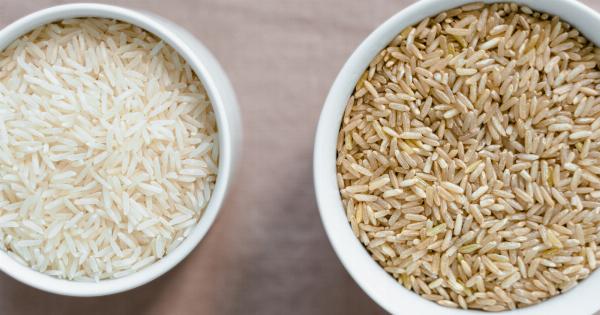Inflammatory Bowel Diseases (IBDs) are chronic conditions that involve inflammation of the digestive tract. This can cause a range of symptoms including abdominal pain, diarrhea, and weight loss.
Managing IBDs requires a comprehensive approach that combines medication, lifestyle changes, and supportive therapies. In this guide, we will provide a complete overview of how to effectively manage IBDs.
Understanding IBDs
Before delving into management strategies, it is important to understand the different types of IBDs. The two main types are Crohn’s disease and ulcerative colitis.
Crohn’s disease can affect any part of the digestive tract, while ulcerative colitis primarily targets the colon and rectum. Both conditions involve chronic inflammation, but they have distinct symptoms and treatment approaches.
Medical Management
Proper medical management plays a crucial role in controlling IBDs. The primary goal of treatment is to reduce inflammation and keep symptoms under control. This often involves the use of medications such as:.
- Anti-inflammatories: These drugs help reduce inflammation in the digestive tract.
- Immunosuppressants: They suppress the immune system to prevent it from attacking the digestive tract.
- Biologics: These medications target specific molecules involved in the inflammation process.
- Antibiotics: In some cases, antibiotics are prescribed to address bacterial overgrowth or infections.
Lifestyle Changes
In addition to medication, making certain lifestyle changes can greatly contribute to managing IBDs. These include:.
- Dietary Modifications: Certain foods can trigger IBD symptoms, so identifying and avoiding these triggers is essential. A low-fiber diet may be recommended during flare-ups, while a well-balanced and nutrient-rich diet is encouraged during remission.
- Stress Management: Stress can worsen IBD symptoms, so finding effective stress-reducing techniques such as regular exercise, meditation, or counseling is crucial.
- Smoking Cessation: Smoking is known to worsen Crohn’s disease and increase the risk of relapse. Quitting smoking is highly recommended for individuals with IBDs.
Complementary Therapies
Complementary therapies can be used alongside medical treatment to further improve the management of IBDs. Some complementary therapies that have shown promise include:.
- Probiotics: These are beneficial bacteria that can help restore the balance of gut flora and potentially reduce inflammation.
- Acupuncture: This ancient practice involves the insertion of thin needles into specific points on the body and may help alleviate pain and inflammation associated with IBDs.
- Mind-Body Techniques: Practices such as yoga, tai chi, and guided imagery have been shown to help reduce stress and improve overall well-being in individuals with IBDs.
Surgical Interventions
In certain cases, surgical intervention may be necessary to manage IBDs. Surgery may be recommended for individuals who do not respond to medication or experience complications such as bowel obstructions, abscesses, or perforations.
Surgical options include:.
- Colectomy: This involves removing the entire colon and rectum and may be necessary for individuals with severe ulcerative colitis.
- Ileostomy or Colostomy: These procedures involve creating an opening in the abdominal wall to divert waste into a pouch outside the body.
- Strictureplasty: For individuals with Crohn’s disease, strictureplasty can help widen narrowed sections of the intestines.
Monitoring and Follow-Up Care
Regular monitoring and follow-up care are essential components of managing IBDs. This typically involves:.
- Regular check-ups with gastroenterologists to assess disease activity and response to treatment.
- Lab tests to monitor inflammation markers, nutritional status, and medication side effects.
- Colonoscopies or endoscopies to evaluate the extent of inflammation and detect any potential complications.
Support and Education
Living with IBDs can be challenging, so finding support and educating oneself about the condition is crucial. Some helpful resources include:.
- Support groups: Joining a support group can provide a sense of community, emotional support, and helpful tips for managing IBDs.
- Education programs: Participating in educational programs or workshops can help individuals understand their condition better and learn important self-management techniques.
- Online forums and websites: Various online forums and websites provide a platform for individuals with IBDs to connect, share experiences, and access valuable information.
Conclusion
Effectively managing IBDs requires a comprehensive approach that incorporates medical management, lifestyle changes, complementary therapies, and, in some cases, surgical interventions.
Regular monitoring, follow-up care, and seeking support are essential components of successfully managing IBDs and improving quality of life for individuals living with these conditions.


























